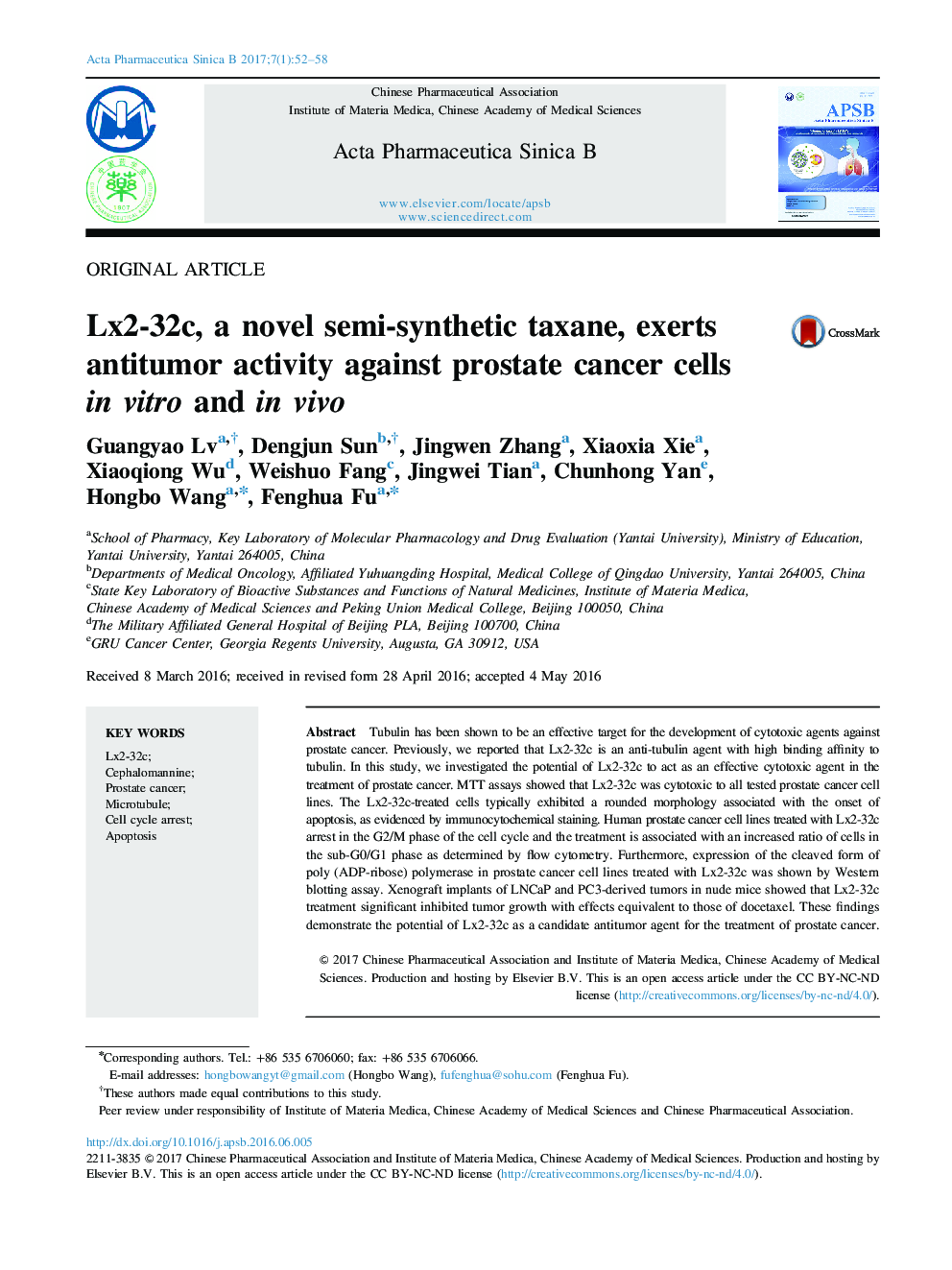| Article ID | Journal | Published Year | Pages | File Type |
|---|---|---|---|---|
| 5546632 | Acta Pharmaceutica Sinica B | 2017 | 7 Pages |
Tubulin has been shown to be an effective target for the development of cytotoxic agents against prostate cancer. Previously, we reported that Lx2-32c is an anti-tubulin agent with high binding affinity to tubulin. In this study, we investigated the potential of Lx2-32c to act as an effective cytotoxic agent in the treatment of prostate cancer. MTT assays showed that Lx2-32c was cytotoxic to all tested prostate cancer cell lines. The Lx2-32c-treated cells typically exhibited a rounded morphology associated with the onset of apoptosis, as evidenced by immunocytochemical staining. Human prostate cancer cell lines treated with Lx2-32c arrest in the G2/M phase of the cell cycle and the treatment is associated with an increased ratio of cells in the sub-G0/G1 phase as determined by flow cytometry. Furthermore, expression of the cleaved form of poly (ADP-ribose) polymerase in prostate cancer cell lines treated with Lx2-32c was shown by Western blotting assay. Xenograft implants of LNCaP and PC3-derived tumors in nude mice showed that Lx2-32c treatment significant inhibited tumor growth with effects equivalent to those of docetaxel. These findings demonstrate the potential of Lx2-32c as a candidate antitumor agent for the treatment of prostate cancer.
Graphical abstractA novel microtubule-polymerizing agent, Lx2-32c, can arrest prostate cancer cells in the G2/M phase and induce cell apoptosis by disrupting microtubule dynamics. This compound also displays antitumor efficacy in vivo.Download high-res image (113KB)Download full-size image
